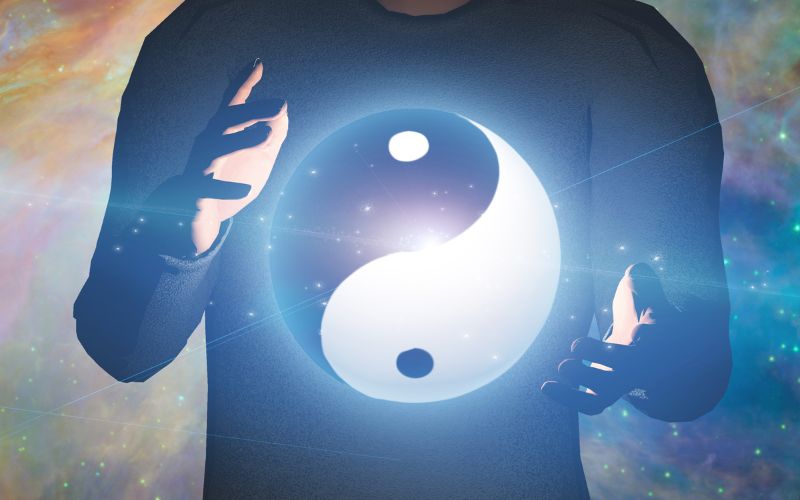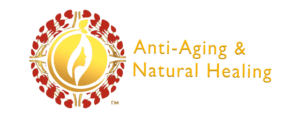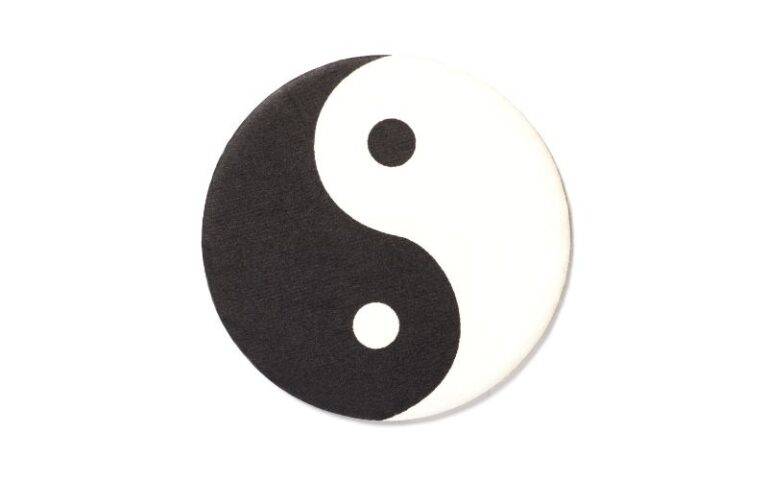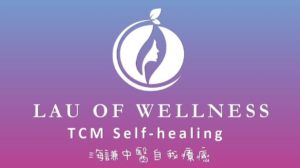Traditional Chinese medicine has long been practiced in China and is gaining popularity in the United States as a complementary and alternative form of healthcare.
One of the fundamental principles of Chinese medicine is the concept of Yin and Yang, which represents the balance between opposing forces in the body.
This ancient philosophy forms the basis for diagnosing and treating illnesses using herbal remedies, acupuncture, massage, and other holistic therapies.
In this article, we will explore Yin and Yang principles in Chinese medicine, how they influence health and well-being, and how they can be balanced to promote optimal health.
We will also discuss some common medicinal herbs used in Chinese medicine that help restore balance to the body’s Yin and Yang energies.
Whether you are new to traditional Chinese medicine or looking to deepen your understanding of its principles, this article will provide valuable insight into the holistic approach to health and healing that has been practiced for centuries in China.
The Concept of Yin and Yang in Chinese Medicine

In Chinese medicine, Yin and Yang are considered complementary forces that exist in everything in the universe, including the human body.
Yin represents feminine, passive, cooling, and nourishing qualities, while Yang represents masculine, active, warming, and transforming qualities.
When these two forces are in balance, the body is healthy and functioning optimally. However, imbalances in Yin and Yang can lead to various health problems.
For example, an excess of Yang energy may result in symptoms such as fever, inflammation, or insomnia, while an excess of Yin energy may manifest as fatigue, coldness, or digestive issues.
To restore balance to the body’s Yin and Yang energies, traditional Chinese medicine practitioners use a variety of techniques, including herbal medicine.
The Dualistic Nature of Yin and Yang
According to Chinese medicine, Yin and Yang are not static concepts but are constantly changing and interconnected. They are viewed as a dualistic relationship, where one cannot exist without the other.
For example, night (Yin) transitions into day (Yang), winter (Yin) gives way to summer (Yang), and so on. This dynamic interplay between Yin and Yang is believed to be essential for maintaining harmony within the body and achieving optimal health.
When diagnosing a patient’s health condition, Chinese medicine practitioners assess the balance of Yin and Yang in various organ systems. By understanding which forces are out of balance, they can tailor treatments to restore equilibrium.
Exploring Yin and Yang Herbs
There are several medicinal herbs commonly used in Chinese medicine that are classified as either Yin-tonic or Yang-tonic herbs, depending on their properties and effects on the body.
Some examples of Yin-tonic herbs include Angelica Sinensis Radix (Dang Gui), which is often used to nourish the blood and regulate menstruation; Rehmanniae Radix (Sheng Di Huang), which helps cool excess heat in the body; and Astragali Radix (Huang Qi), which boosts energy and strengthens immunity.
On the other hand, some common Yang-tonic herbs include Ginseng Radix (Ren Shen), which is known for its energizing and revitalizing effects; Cinnamon Twig (Gui Zhi), which warms the body and promotes circulation; and Epimedium Herb (Yin Yang Huo), which enhances libido and sexual function.
By incorporating these Yin-tonic and Yang-tonic herbs into herbal formulas, Chinese medicine practitioners aim to restore balance to the body’s Yin and Yang energies, promoting overall health and well-being.
In addition to herbal medicine, acupuncture, massage therapy, dietary therapy, and other holistic techniques are also used in traditional Chinese medicine to help balance Yin and Yang energies.
Yin and Yang in Everyday Life: Lifestyle and Dietary Considerations
In addition to incorporating Yin-tonic and Yang-tonic herbs into herbal formulas, balancing the Yin and Yang energies in everyday life is essential for optimal health according to traditional Chinese medicine principles.
One way to maintain balance is through lifestyle choices.
For example, practicing relaxation techniques such as meditation or tai chi can help calm an overactive mind (Yang) and nourish the spirit (Yin).
Engaging in regular exercise that combines both vigorous activity and gentle movements, such as yoga or qigong, can also help balance the Yin and Yang energies in the body.
Dietary considerations are another important aspect of balancing Yin and Yang energies.
In general, foods that are considered cooling or Yin-tonic, such as fruits and vegetables, are recommended for individuals with excess Yang energy.
On the other hand, warming or Yang-tonic foods, such as meats and spices, are suggested for those with excess Yin energy.
By paying attention to lifestyle choices and dietary habits that promote balance between Yin and Yang energies, individuals can support their overall health and well-being according to traditional Chinese medicine principles.
Yin and Yang in Acupuncture and Herbal Medicine
In traditional Chinese medicine, acupuncture is often used in conjunction with herbal medicine to help balance the Yin and Yang energies in the body.
Acupuncture is a form of alternative medicine that uses the strategic placement of very thin needles to promote the flow of qi and alleviate imbalances in the body.
These acupuncture points are believed to correspond to different meridians, or energy pathways, in the body.
By targeting specific acupuncture points associated with either Yin or Yang energies, practitioners aim to correct imbalances and promote overall health.
Similarly, herbal medicine plays a crucial role in restoring the balance between Yin and Yang energies.
Herbal formulas are carefully crafted to address individual imbalances by incorporating both Yin-tonic and Yang-tonic herbs.
For example, a formula may include Angelica Sinensis Radix and Ginseng Radix to address both Yin and Yang deficiencies in the body.
Begin Your Health Journey with Lau Of Natural Healing TCM
Start your wellness journey with Lau Of Natural Healing TCM, where you can explore the principles of Yin and Yang in Chinese medicine through holistic techniques such as acupuncture, herbal medicine, massage therapy, and dietary therapy.
We will guide you in understanding how to balance your Yin and Yang energies for optimal health and well-being.
Whether you are looking to improve your energy levels, enhance your fertility, or alleviate chronic pain, Lau Of Natural Healing TCM offers a range of services to help you achieve your wellness goals.
Start your journey towards balance and harmony today by scheduling a consultation with our experienced practitioners.
Together, we can work towards restoring balance and promoting overall health through the principles of Yin and Yang in traditional Chinese medicine.
Conclusion
Overall, the principles of Yin and Yang play a crucial role in traditional Chinese medicine, guiding practitioners in diagnosing illnesses and developing treatment plans that focus on restoring balance to the body’s energies.
By understanding and incorporating these principles into your healthcare routine, you can take a holistic approach to promoting optimal health and well-being.
Whether you are interested in exploring Chinese medicine for the first time or looking to deepen your understanding of its principles, there is much to learn about the ancient healing practices that have been passed down through generations in China.
From herbal remedies to acupuncture and beyond, traditional Chinese medicine offers a unique perspective on health and wellness that can complement Western medical practices and provide a more comprehensive approach to healing.
By embracing the Yin and Yang principles of Chinese medicine, you can tap into the ancient wisdom of this holistic healing tradition and discover new ways to support your health and vitality.
FAQs Related to Yin And Yang Principles
In traditional Chinese medicine, Yin and Yang are two opposing but complementary forces that represent the dualistic nature of the universe. Yin is associated with qualities such as cold, darkness, and quiet, while Yang is linked to heat, light, and activity. Balancing these energies in the body is believed to be essential for maintaining health and well-being.
Practitioners of traditional Chinese medicine use various diagnostic techniques such as pulse diagnosis, tongue examination, and questioning to assess a person’s Yin and Yang energies. Common signs of a Yin deficiency may include dry skin, insomnia, and fatigue, while a Yang deficiency may manifest as cold hands and feet, low energy levels, and frequent urination. Consulting with a trained practitioner can help you determine your specific imbalances and develop a personalized treatment plan.
Some common Yin-tonic herbs used in traditional Chinese medicine include Rehmanniae Radix (Shu Di Huang), Astragali Radix (Huang Qi), and Angelicae Sinensis Radix (Dang Gui). These herbs are often included in herbal formulas to nourish Yin energy, support the kidneys and liver, and promote overall balance in the body.
Yes, you can incorporate the Yin and Yang principles into your daily life by paying attention to balancing activities and choices. For example, incorporating relaxation techniques like meditation or yoga can help balance excess Yang energy, while adding warming foods like ginger or cinnamon to your diet can support Yin energy. By being mindful of these principles, you can work towards achieving a more balanced and harmonious lifestyle.








